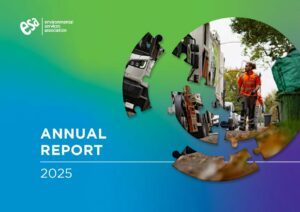The Environmental Services Association (ESA), the trade association representing the UK’s resource and waste management industry has clarified its position on RDF Exportss in its ETS Strategy.
Jacob Hayler has confirmed that in line with the Association Net Zero strategy and objective to become a net-zero recycling and waste management sector by 2040, the ESA supports the inclusion of energy recovery operations in the Emissions Trading Scheme (ETS). However, he has added that this approach is not without its potential pitfalls if not implemented correctly.
The ESA’s Emissions Trading Scheme (ETS) Strategy document, released September 2023, included reference to “prevention” of RDF exports [that are not subject to other controls]. This has since been clarified in an updated version to refer to “controls for” RDF exports [to ensure a level playing field]. The Strategy Document makes a number of policy recommendations setting out a range of pre-conditions that should be met to ensure the ETS delivers on its ambitions to cut carbon emissions associated with residual waste treatment, while also avoiding unintended consequences which could see waste material fall down the waste hierarchy, or for the carbon emissions associated with processing the UK’s waste to shift offshore to other countries.
To ensure a level playing field between exports and domestic treatment, among the recommendations in the associations ETS strategy, was the proposal that waste exports should be subject to additional controls from 2028 to ensure parity with our EU neighbours and to prevent waste from simply being exported at lower cost. This could be achieved through various mechanisms and the ESA welcomes discussion with stakeholders to agree the best way forward.
The inclusion of energy recovery within the ETS is a significant regulatory intervention for the sector and the association want to work with all stakeholders across industry, both from across ESA membership and beyond, to ensure that it is designed and implemented correctly and fairly, which is the association set out its position for discussion with peers well ahead of a formal consultation by Government.




